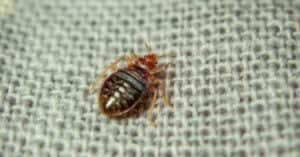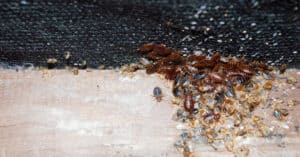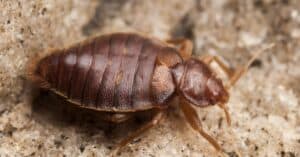Traveling to new places is fun and exciting. When you go on vacation, you have the opportunity to explore new horizons, meet new people, and take in new sights. Where you lay your head down at the end of each day should be the least of your concerns. However, a hotel room infested with bed bugs will instantly ruin your trip. And once you’re home, the problem may continue. Bed bugs can hitch a ride by clinging to your clothing and luggage.
The best way to avoid this is to keep an eye out for bed bugs whenever you’re sleeping somewhere unfamiliar. This applies when crashing at a friend’s house or staying in a dorm at a college university. It’s crucial to be aware of the most common places bed bugs like to nest. Here’s what you should know so you can avoid a bed bug infestation in your home.
Here’s Where Bed Bugs Nest
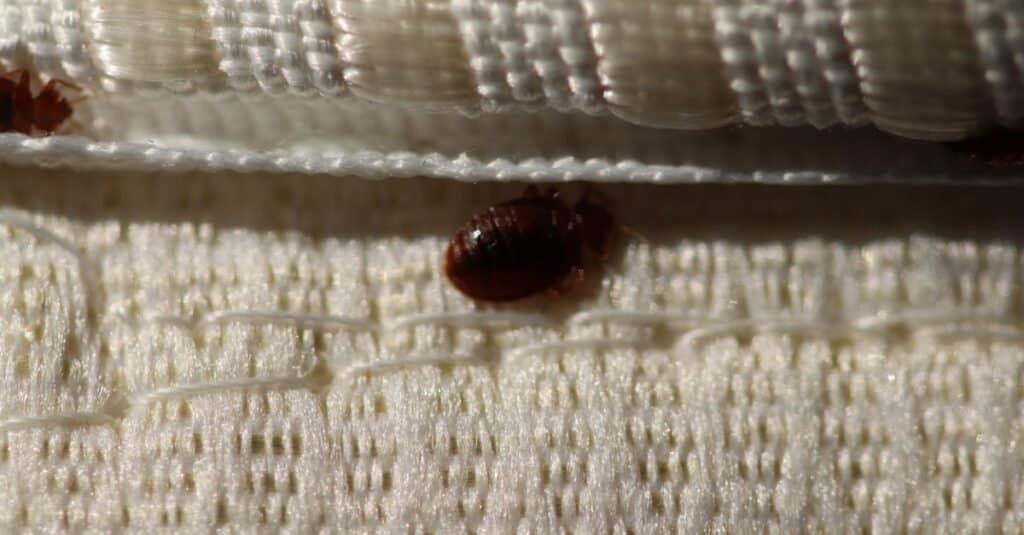
Bed bugs can be found in multiple places in a home.
©iStock.com/Matteo Lanciano
Bed bugs, as their name suggests, love nesting in mattresses. Beds are the easiest place for them to nestle in and make themselves comfortable. Terminix notes that any hidden areas surrounding your bed will attract bed bugs. This is because they hate making contact with direct light. If they can hide from direct light in the seams of your mattress or in any of the crevices around your headboard and bed frame, they’ll be a lot more inclined to stick around. It’s highly unlikely you’ll notice bed bugs actually crawling around the flat surfaces of your mattress. You most definitely won’t notice them during daylight hours with natural sunlight pouring into your windows.
Bed bugs likely won’t show their faces when all lights are on. Unfortunately, the box springs of your bed is at risk for bed bugs as well. Since it’s easy enough to tear through the cover of a box spring, bed bugs make their way inside without facing too much of a challenge. When it comes to laying their eggs, they don’t need much. All they require are dark crevices and seams. Bed bugs know their eggs will be visibly protected in dark and hidden areas. If they can get comfortable in the hidden areas around your bed, they’ll allow the eggs to start hatching. This type of infestation becomes far more serious once bed bugs start laying and hatching eggs. When they get that far, it’s possible they’ll spread to other pieces of furniture around your home.
Why Do Bed Bugs Prefer Nesting in Human Beds?
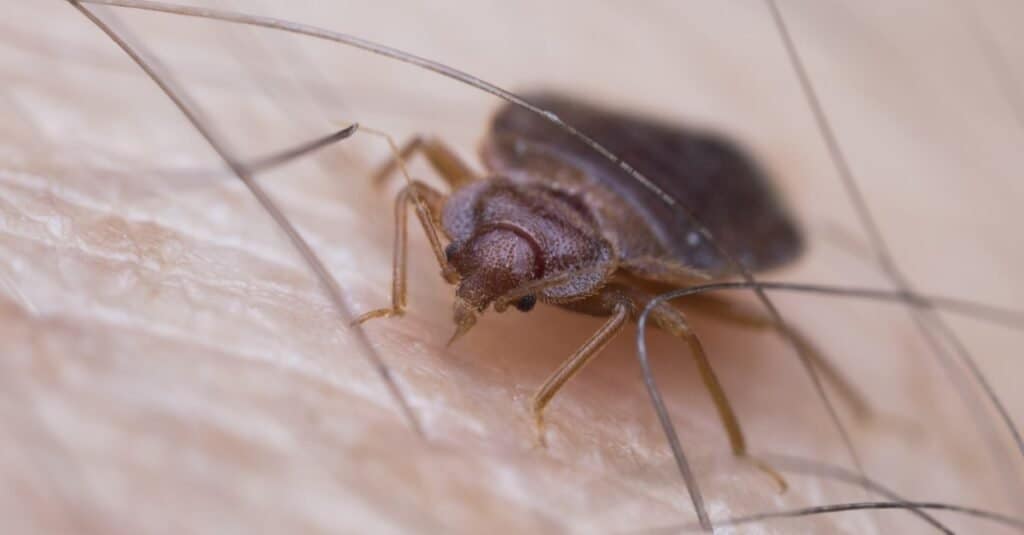
Check for bed bugs before they feast on your blood.
©Pavel Krasensky/Shutterstock.com
Bed bugs are highly attracted to beds for one simple reason — they feast on our blood. Bed bugs are mainly only active during nighttime hours for a couple of obvious reasons. First, it’s easier for them to move around in the dark without detection. Second, while humans are asleep, bed bugs have quick and easy access to human blood for their consumption. All they have to do is wait for a person to fall asleep in bed.
Bed Bug Signs to Look Out For
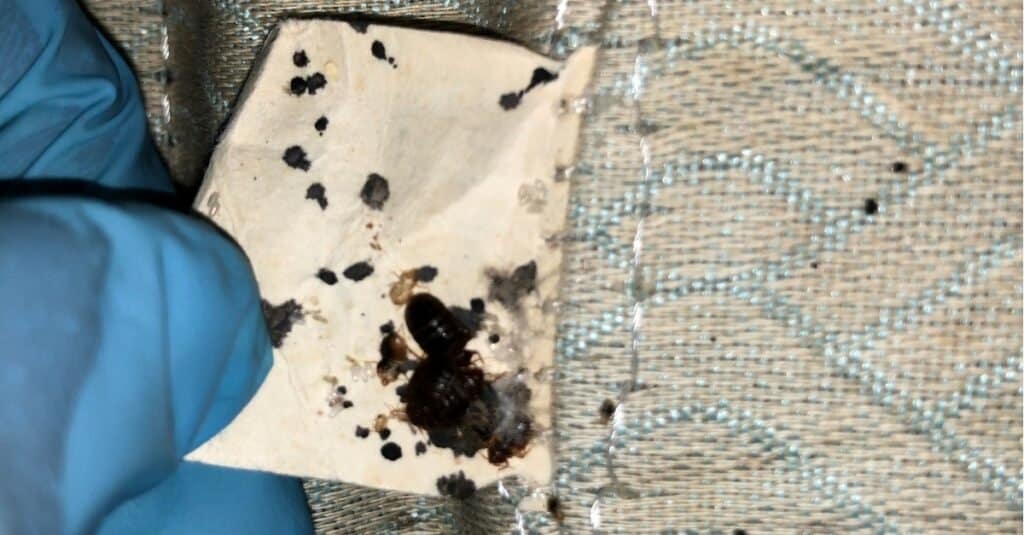
Bed bugs leave obvious signs of their presence.
©iStock.com/Matteo Lanciano
If you think you might be dealing with bed bugs, it’s time to jump into action. Some signs that indicate a bed bug infestation include strange and musty odors and red-colored smears across your sheets or pajamas. Bed bugs don’t smell good and the color smears they leave behind are quite obvious. Dark spots and stains are also a sign of bed bugs. They leave fecal matter wherever they go as well. Bug carcasses in your mattress is another big sign. If you see one or two carcasses, there’s a high possibility there are other bed bugs who are still alive and thriving in different hidden areas.
Here’s How to Get Rid of Bed Bugs
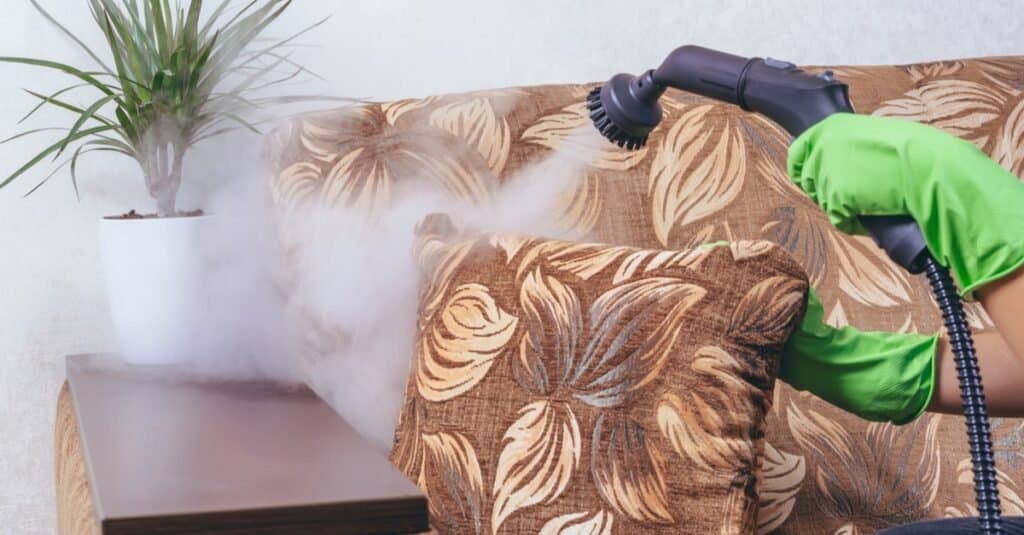
One of the best ways to kill bed bugs instantly is by using steam-cleaning equipment.
©Dmytro Golovchenko/Shutterstock.com
Getting rid of bedbugs is essential if you’re faced with an infestation. Start by identifying all impacted areas and prepping for bed bug treatment by clearing away all your valuables. Next, wash your bedding and clothing for 30 minutes in hot water before using a steamer over all the typical places where bed bugs hide. After that, place any infested items into black garbage bags and place into a freezer at 0°F. Some of the insecticides to experiment with while handling a bed bug problem include foggers, bug bombs, and plant oil-based products. If none of these remedies work, it’s time to enlist help from professionals.
The photo featured at the top of this post is © Andrey_Popov/Shutterstock.com
Thank you for reading! Have some feedback for us? Contact the AZ Animals editorial team.




